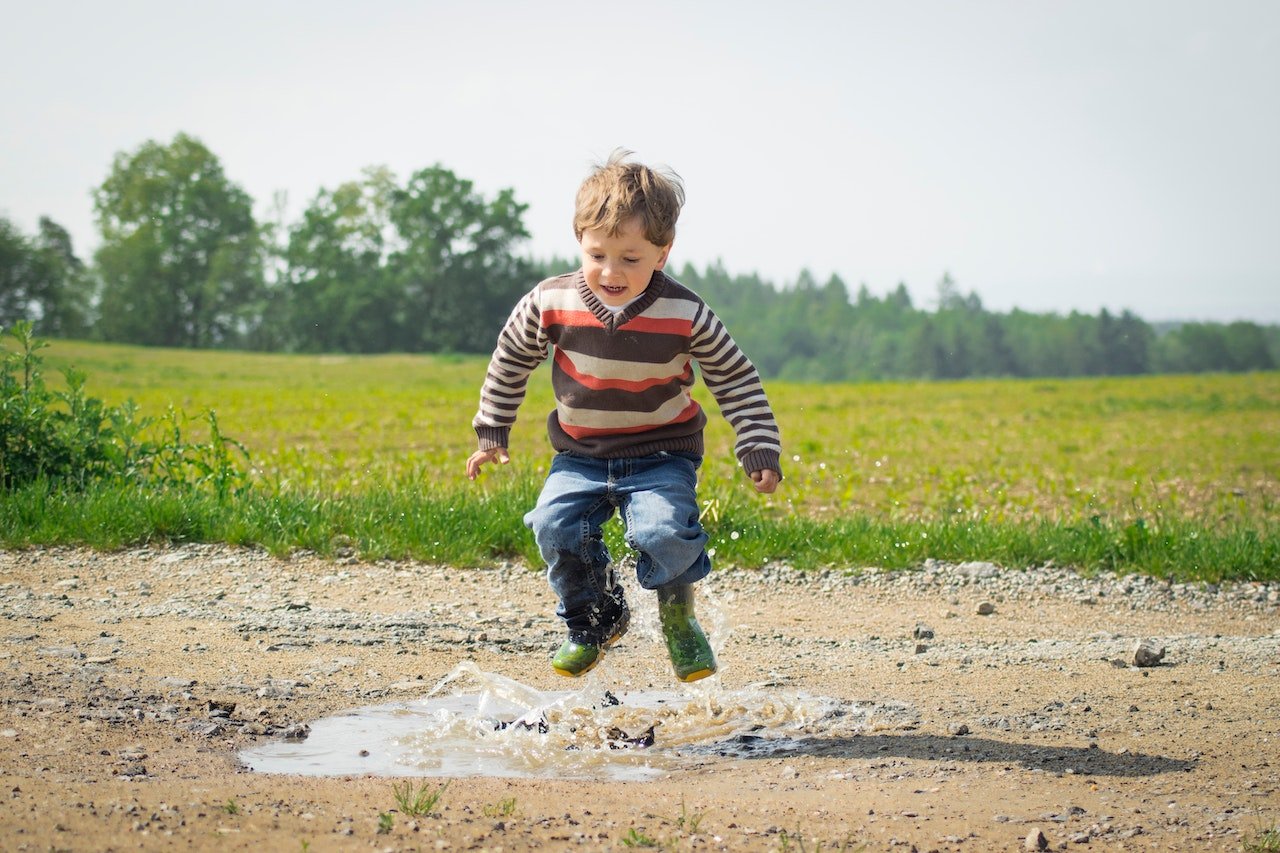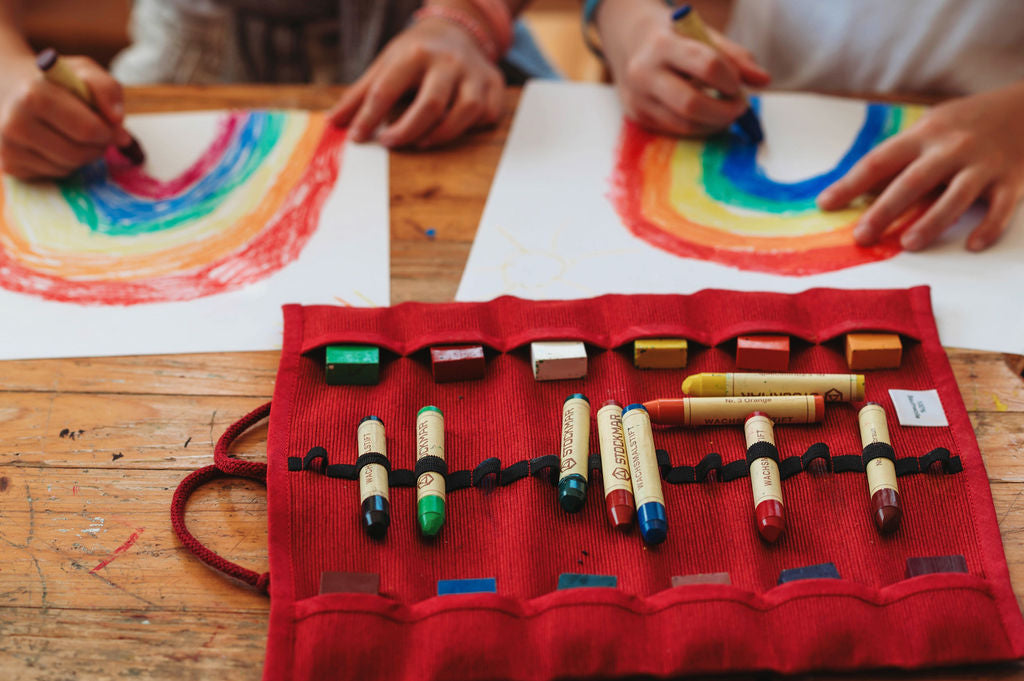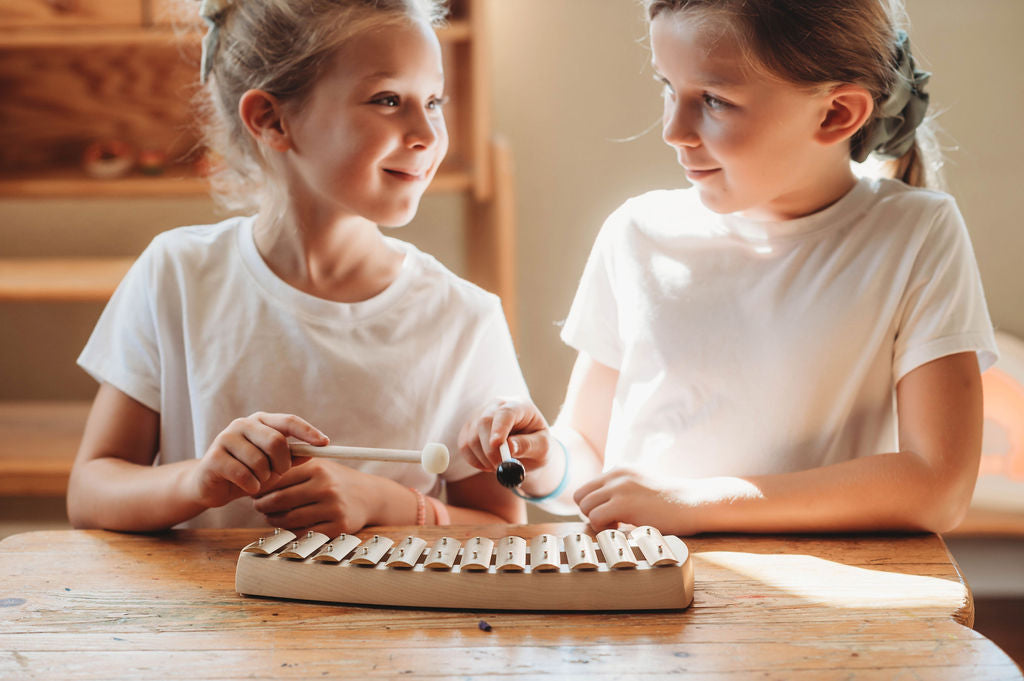
As parents and caregivers, we often feel the need to entertain, engage, and guide our children every step of the way. However, independent play is an essential aspect of a child's growth and development, fostering creativity, problem-solving skills, and a sense of discovery. Let's explore TEN WAYS to encourage independent play in children, drawing on insights from renowned experts and books on the subject.
1. Embrace Learning by Playing
All the experts agree that play is a crucial aspect of a child's development. As Dr. Lawrence J. Cohen, author of "Playful Parenting," states, "Play is the natural way children learn, grow, and make sense of the world." Independent play encourages creativity, problem-solving, and critical thinking skills, allowing children to explore their environment and make sense of their experiences. So remember, when they are playing, they are actually "hard at work."
2. Creating a Safe Environment
A safe and nurturing environment is essential for encouraging independent play. In "Simplicity Parenting," Kim John Payne and Lisa M. Ross explain that "a protected space helps children feel secure enough to take risks, make mistakes, and explore their world." This includes child-proofing your home, creating designated play areas, and providing age-appropriate toys and materials.

Pexels
3. Limiting Screen Time
Reducing or limiting screen time is vital to encourage more active, imaginative, and independent play experiences. In "The Whole-Brain Child," Daniel J. Siegel and Tina Payne Bryson emphasize that "children need a balance of activities that engage both the left and right brain, including physical play, art, and music."
By setting boundaries on screen time, you create opportunities for your child to engage in other forms of play that foster their development.

Pexels - Pavel Danilyuk
4. Autonomy and Choice
Encouraging children to make choices and take the lead in their play fosters independence and a sense of agency. In "The Montessori Toddler," Simone Davies explains that "giving children the freedom to choose their activities and follow their interests helps them develop self-confidence and a sense of competence." By providing a variety of toys, materials, and activities, you empower your child to take control of their play experiences.
5. Unstructured Playtime
Unstructured playtime allows children to explore, create, and learn at their own pace without adult direction. Angela J. Hanscom, author of "Balanced and Barefoot," notes that "unstructured play fosters creativity, curiosity, and problem-solving skills." By giving your child the time and space to play freely, you encourage them to develop their imagination and independence.

Pexels
6. Parental Involvement
While parental engagement and support are vital in creating a supportive environment for independent play, knowing when to step back is equally important. Dr. Lawrence J. Cohen advises that "sometimes, the best thing a parent can do is to simply be present, without directing or interfering in their child's play."
By observing your child and offering guidance when needed, you encourage them to explore and learn on their own.
7. Outdoor Play
Outdoor play is essential in promoting independent play, physical activity, and connection with nature. Angela J. Hanscom argues that "unrestricted outdoor play helps children develop strong, confident, and capable bodies and minds."
By encouraging your child to play outside, you provide them with the space and opportunity to engage in independent, self-directed play.

Pexels - Tatiana Syrikova

www.goric.com
8. Simple & Open-Ended Toys
Providing simple, open-ended toys and materials encourages imagination, creativity, and problem-solving skills. In "Simplicity Parenting," Kim John Payne and Lisa M. Ross recommend "toys that are 10 percent toy and 90 percent child, allowing children to use their imagination and creativity to engage in play." Examples of open-ended toys include blocks, art supplies, and dress-up clothes, which can be used in various ways and adapted to different play scenarios.
9. Encouraging Curiosity
Nurturing a child's curiosity and sense of wonder is essential in fostering independent play and learning. In "The Whole-Brain Child," Daniel J. Siegel and Tina Payne Bryson explain that "by encouraging curiosity, parents help children develop the skills needed for independent exploration and discovery."
This can be done by asking open-ended questions, providing opportunities for hands-on exploration, and sharing your excitement about new discoveries.

Pexels -Tatiana Syrikova
10. Balancing Structured & Unstructured Activities
Balancing structured activities, such as classes or lessons, with ample unstructured playtime allows children to develop independence and explore their interests at their own pace. In "The Montessori Toddler," Simone Davies suggests that "children need a balance of guided activities and free play to develop a strong foundation for lifelong learning." By incorporating both types of activities into your child's daily routine, you create an environment that fosters independent play and learning.

www.goric.com









